
On this day, July 13, 1994, Tonya Harding's ex-husband, Jeff Gillooly, was sentenced in Portland to two years in prison for his role in the attack on Nancy Kerrigan. He ended up serving six months.
 Post an Event
Post an Event
| TILLAMOOK COUNTY FAIR - 100 YEARS OF PIG N'FORD |
| Wednesday, August 6, 2025 at 10:00 am |
| The Tillamook County Fair received its recognition as one of the top ten Blue Ribbon Fairs in the nation due to its uniqueness; offering so much for fairgoers to enjoy free along with their paid admission. Fairgoers can enjoy all of the Open Class and 4-H/FFA exhibits that Tillamook County residents have prepared the year prior, free entertainment and concerts, live exotic animal displays, and a whole lot more!
FOR MORE INFORMATION
tillamookfairoffice@gmail.com
(M-F, 8 AM-5 PM) at (503) 842-2272.
Reminders:
NO OUTSIDE FOOD OR DRINK
All bags are subject to search
For the safety of all present, only trained service animals are permitted to enter Fairgrounds property. A trained service animal is any guide dog, signal dog, or other animal individually trained to do work or perform tasks for people with disabilities. |
| 4603 East 3rd Street
Tillamook, OR, 97141 |
How does the first rains after a wildfire affect the water?
Governor Tina Kotek declared a drought in Crook and Jefferson counties through
Executive Order 23-05, and directed state agencies to coordinate and prioritize assistance to the region. The Oregon Drought Readiness Council, a standing body composed of natural resource, public health, and emergency response agencies received input from Oregon’s Water Supply Availability Committee on regional water supply conditions recommending that the Governor declare drought in Crook and Jefferson Counties for the 2023 calendar year, pursuant to Oregon Revised Statutes (ORS) 536.740.
The Executive Order states, “Forecasted water supply conditions and precipitation levels are not expected to improve. Drought is likely to have a significant economic impact on the farm, ranch, vineyard, recreation, tourism and natural resources sectors, as well as an impact on drinking water, fish and wildlife, and important minimum flows for public instream uses and other natural resources dependent on adequate precipitation, stored water, and streamflow in these areas. Extreme conditions are expected to affect local growers and livestock, increase the potential for fire, shorten the growing season, and decrease water supplies.â€
“While this is the first drought declaration of the year, Central Oregon has been facing persistent drought for years due to the ongoing impacts of climate change,†Governor Kotek said. “This is already looking like another challenging drought year… Moreover, our state needs to get serious about water resilience moving forward. Our communities, the agriculture sector and our fish and wildlife are all impacted by water scarcity, and we all have to be working together to address the challenges that we are facing today and into the future.â€
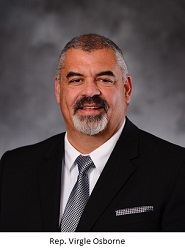
Will her words influence the House Committee on Agriculture, Land Use, Natural Resources and Water? Senator David Brock Smith (R-Port Orford) and Representative Virgle Osborne (R-Roseburg) co-sponsored
HB 2248, which requires the Water Resources Department and Department of Environmental Quality to study the impacts of wildfire on water quality of streams and tributaries, and assess how the first rains after a wildfire affect the water. Representative Bobby Levy (R-Echo) testified that nearly 900 wildfires, over 2/3 caused by human activity, leaves damage to Oregon’s waterways the state needs to assess and repair.
It isn’t good enough to claim that climate change and wildfires are causing drought conditions. How the state plans and utilizes soil analyses goes further than reacting without strong scientific basis according to the Oregonians for Food & Shelter in opposition to creating a $4 million agency for a Soil Health Initiative in
HB 2998. “Creating resiliency for Oregon’s agricultural sector is a much more complex issue than soils alone, and includes things like crop diversification, irrigation, and identifying tools and technologies needed to help growers adapt to a changing climate and increase production.†A wealth of information already exists regarding the characteristics of soils across Oregon, and their suitability for agricultural productions. They claim “the bill lacks broad application to the variety of production systems in Oregon and ignores existing and successful soil management approaches and services already adopted in the state.â€
A D V E R T I S E M E N T

A D V E R T I S E M E N T
The drought declaration by Governor Kotek unlocks a number of drought-related emergency tools for water users, including assistance to local water users. These tools can certainly help, but its a robust OSU extension and soil conservation district and individual farming technologies that have enabled farms to survive despite regulating to a one-size-fits-all mentality in regulations.
--Dollie Banner| Post Date: 2023-02-18 01:40:13 | Last Update: 2023-02-17 01:56:44 |
Is nuclear the answer for green energy?
Oregonians can’t have their cake and eat it too. They have been persuaded that the climate crisis is real and therefore the legislature has the notion that Oregonians should save the world by over regulating carbon emissions. But when it comes to walking the talk, it seems that Oregonians are tripping and doing face plants in green mud.
HB 2215 received a hearing to answer the green energy shortage with a nuclear option. But the Green New Deal folks turned their backs on the cleanest energy there is. Representative Bobby Levy (R-Echo) testified, “According to the US Department of Energy, nuclear power is the largest source of clean power in the United States. It generates nearly 800 billion kilowatt hours of electricity each year and produces more than half of the nation’s emissions-free electricity. This avoids more than 470 million metric tons of carbon each year, which is the equivalent of removing 100 million cars off the road.†She further states, “nuclear plants can employ up to 700 workers with salaries that are 30% higher than the local average.â€
Currently, Oregon’s Energy Facility Siting Council (EFSC) may issue site certificates for nuclear-fueled thermal power plants, but only after finding that an adequate repository for the disposal of the high-level radioactive waste produced by the plant has been licensed to operate by the appropriate agency of the federal government (ORS 469.595). If an adequate repository exists and is licensed, the nuclear-fueled thermal power plant site certificate proposal must be approved or rejected by Oregon voters at the next available statewide general election (ORS 469.597). House Bill 2215 repeals these provisions by the voters at the next regular general election.
Nuclear power is the key to a clean energy future. Solar panels and windmills alone won’t provide enough energy, and Oregon doesn't recognize hydropower as renewable. According to the Oregon Department of Energy, the Columbia Generating Station in Washington State provides Oregon’s nuclear power and the Bonneville Power Administration markets the electricity it produces.

Representative Shelly Boshart Davis (R-Albany), one of the sponsors of
HB 2215, toured NuScale Power located in the old HP campus on Hwy 20. "They are pioneering clean nuclear power," she states. “I was impressed by the safety of the NuScale design. The design eliminates a Fukushima-type event. They simulated an earthquake while I was there, and they walked me through how quickly the system can recover and rapidly return to power to support first responders such as hospitals, police and fire. The biggest issue renewable energy faces is reliability. Nuclear provides reliability when used alongside other sources of energy.â€
Rep. Boshart Davis testified, “I believe that nuclear power is the key to a clean energy future. Solar panels and windmills alone won’t get us there. And we all know that hydropower is renewable...yet Oregon doesn't recognize it as such. This needs to change.â€
A D V E R T I S E M E N T

A D V E R T I S E M E N T
Peter Bergel testified as co-author and Campaign Director of the 1980 ballot measure 7, which created current law. Bergel contends, “HB 2215 is an attempt to deprive Oregonians of the protection against nuclear waste… seeks to deprive Oregonians of a voice in deciding whether or not to undertake the risks that nuclear power inevitably presents. These include risk of exposure to radiation, risk of catastrophic accident, risk of higher electric bills and risk that money desperately needed to advance safer, cheaper alternatives will be squandered on a moribund technology.â€
Nuclear-fueled thermal power seems to be the best green energy option for the environment with the least amount of emissions. It is not only the cleanest, but the most efficient, reliable, and dependable green energy source. A close second is hydropower because of efficiency and reliability, but even that's been under attack by dam busting pursuits.
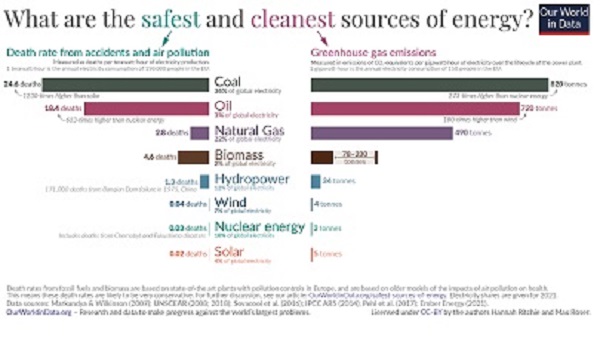
Solar and wind energy producing options may have low emissions, but they dirty the environment in other ways and are not reliable or dependable enough to support the demands of our power grid. Not to mention they are made in China. With all the safeguards that have been developed to make nuclear-fueled thermal power withstand natural disasters, where are the green supporters?
A second hearing is scheduled for February 20 at 3PM, room HR C before the House Committee On Climate, Energy, and Environment. Testimony can still be
submitted through February 20.
--Donna Bleiler| Post Date: 2023-02-17 07:53:57 | Last Update: 2023-02-18 14:31:35 |
“This is already looking like another challenging yearâ€
Oregon's Governor Tina Kotek has now declared a drought in Crook and Jefferson counties through Executive Order 23-05, and directed state agencies to coordinate and prioritize assistance to the region. This is the first drought declaration of 2023.
“While this is the first drought declaration of the year, Central Oregon has been facing persistent drought for years due to the ongoing impacts of climate change,†Governor Kotek said. “This is already looking like another challenging drought year for the state, which brings higher risks of wildfires and water shortages. I am committed to ensuring that our agencies are working closely with all partners to get those who are most impacted the help they need."
She continued, “Moreover, our state needs to get serious about water resilience moving forward. Our communities, the agriculture sector and our fish and wildlife are all impacted by water scarcity, and we all have to be working together to address the challenges that we are facing today and into the future.â€
The drought declaration by Governor Kotek unlocks a number of drought-related emergency tools for water users, including assistance to local water users. Drought declarations also allow the Water Resources Department to expedite review processes and reduce fee schedules.
All or a portion of Crook County has been classified as having exceptional drought (D4) conditions since early July 2021. The Standardized Precipitation Evapotranspiration Index, a metric to measure drought conditions, indicates the 36-month average ending in January 2023 is by far the worst on record.
Annual water supplies available for water users and instream uses within Crook County are a function of winter snowpack for water storage in Ochoco and Prineville reservoirs and natural flows in the Crooked River and its tributaries. Current conditions in the Crooked River watershed are less than 30% of the average and reservoir storage is only 10% full.
The current U.S. drought monitor has most of Jefferson County mapped in severe to exceptional drought status. Natural flows and reservoir supplies are at or near all-time lows affecting water users and impacting drinking water, fish, wildlife, and instream uses.
A D V E R T I S E M E N T

A D V E R T I S E M E N T
The Oregon Drought Readiness Council, a standing body composed of natural resource, public health, and emergency response agencies, received requests from the Crook County Court and Jefferson County Board of Commissioners in January requesting Governor’s drought declarations.
The council received input from Oregon’s Water Supply Availability Committee on regional water supply conditions and Council members have conferred on this matter. The Council recommended that the Governor declare drought in Crook and Jefferson Counties for the 2023 calendar year, pursuant to Oregon Revised Statutes (ORS) 536.740.
As state and local officials coordinate with federal partners, conditions will be closely monitored by the state’s natural resource and public safety agencies, including the Oregon Water Resources Department and the Oregon Office of Emergency Management.
--Ben Fisher| Post Date: 2023-02-16 22:18:14 | Last Update: 2023-02-16 22:37:23 |
More time is needed to see results
Representative Rob Nosse (D-Portland) appears to be out of touch with rural Oregon and how much the valley needs rural Oregon for the state to function. He has sponsored
HB 3158, which would impose a laundry list of taxes that would make farming or owning or operating any heavy equipment in Oregon more expensive.
Representative Nosse defended his bill indicating the taxes in the bill are needed to fund the already passed into law deadlines for diesel engine conversions. It appears the Volkswagen settlement has run out of funds that supported the passage of
HB 2007 in 2019 legislation to convert or retrofit older diesel engines to 1997 or newer models. The law states by 2029, all diesel-powered medium-duty trucks and publicly owned heavy-duty trucks must run on an engine that is 2010 or newer and all privately owned diesel-powered heavy-duty trucks must run on an engine that is 2007 or newer. Initially farm vehicles were exempt.

Representative Shelly Boshart Davis (R-Albany) presented the
ODOT report,
report of the task force, and
charts that doesn’t support the need for the bill, which states: “In most cases, cost is a chief impediment to the transition to newer engines and adoption of alternative technologies. Additionally, the Task Force heard that successful projects rely in flexible incentives, allowing fleets to identify technologies or upgrades that meet their unique operational needs. While the cost of replacing the entire Oregon diesel fleet with modern, less-polluting equipment is far too large for a public financing project, substantial progress has been made by other states with incentive programs designed to speed the transition to cleaner equipment. Public incentives for entities regulated by House Bill 2007 is especially important.â€
Rep. Boshart Davis testified of her service on the bipartisan Diesel Task Force created by HB 2007 (2019) to consider policies to help businesses reduce emissions from diesel engines used in the course of business. She stated, “The Task Force ultimately decided not to make specific recommendations, particularly for revenue. But yet, we have this bill anyways. It goes against the businesses we are trying to help.â€
Crippling farmers with these taxes may add to inflation, and added expenses always trickles down through farm operations to increase costs for food and every delivery system throughout Oregon. The bill includes:
- Tax on tires
- Tax businesses that sell offroad diesel equipment
- Tax the use of offroad diesel equipment if you purchase it out of state
- Tax heavy equipment rentals
- Tax heavy-duty vehicles
- Tax on dyed diesel
A D V E R T I S E M E N T

A D V E R T I S E M E N T
A part of the 2019 legislation that keeps getting pushed aside is that trucks may comply by switching to a cleaner fuel.
Since 2019, diesel has been discussed in every legislative session in some form. A less extensive solution has been proposed to convert to renewable diesel. Unlike biodiesel, one distributor, Neste, claims the lifecycle carbon emissions of renewable diesel runs lower than electric vehicles. Renewable diesel can be run in all diesel engines without clogging and freezing up, and can be transported in existing pipelines, unlike biodiesel. It is again proposed as a study in
HB 2826 establishing a task force, and
HB 2529, which requires the State Department of Agriculture, in consultation with the State Department of Energy, study the use of biomass as feedstock for production of renewable diesel.
Even the task force report states, “On a more promising front, renewable diesel is becoming more widely available, reduces both greenhouse gas and tailpipe emissions, and has achieved cost parity with fossil diesel. Unlike traditional biodiesel, renewable diesel is chemically identical to fossil diesel, meaning it can be dropped in with no modification needs to the engine and no negative effects on the engine’s operation.â€
The legislature has the opportunity to search out a real solution that would benefit all – environment and diesel equipment operators. If the goal is clean air, why has there been so much hesitation to entertain at least a study of renewable diesel?
Another diesel bill getting lots of debate is
HB 2396, which directs DEQ to establish and implement an indirect source review program that will rid diesel and replace with electric equipment. The program will control emissions from indirect sources as well as the aggregate emissions from vehicles or engines associated with the indirect source, and requires that residents or businesses be notified in the geographic area of any significant air quality concerns.
Opponents of both bills say the groundwork is laid to meet legislative goals, but more time is needed to see results. As legislation mounts up, what will the effect be on businesses that consequently will increase inflation and impact everyone?
--Donna Bleiler| Post Date: 2023-02-16 08:49:02 | Last Update: 2023-02-15 23:01:55 |
Public funding follows student to school of choice
It’s been a year-long battle for Education Freedom for Oregon to get to the point to collect signatures for school choice to be on the November 2024 ballot. Initiatives 2024-5 and 2024-6 began as 2024-1, a school choice constitutional amendment. However, in January 2022, it was rejected by Secretary of State Shemia Fagan because it was not specific to one issue.
The initiative was split and refiled on May 25, 2022. The Oregon Supreme Court released these titles on February 10. Initiative 2024-5 amends the constitution: Parent may select any public school statewide; district must admit, space permitting. Limited admission priorities. Initiative 2024-6 amends the constitution: State funds provided for private, religious, homeschool, tuition/expenses when parent declines K-12 public school.
The original titles were challenged in the Supreme Court by Reed Scott-Schwalbach, president of the Oregon Education Association, objecting to the Attorney General Ellen Rosenblum’s modified ballot title for 2024-5 and approval of 2024-6. The Supreme Court did their own modification to 2024-5 and upheld the title for 2024-6.
The Education Freedom for Oregon Executive Committee were disappointed the teachers’ union used a time wasting ploy to delay collecting signatures. President Donna Kreitzberg is glad to finally be able to kick off the "Let Them Learn" campaign. She says, “The ‘Let Them Learn’ campaign says goodbye to the artificial limits that have held many Oregon children back. The education of the past isn’t built with any particular student in mind and makes education options a privilege for the few. The education of tomorrow recognizes the inherent uniqueness of every child and offers a wide-range of options not determined by zip code or income.†Perhaps teachers and their unions will see that the campaign is for students, and not a threat to teachers.
A D V E R T I S E M E N T

A D V E R T I S E M E N T
Summary for 2024-5 petition gives parents right to select any public/charter school statewide if child is not suspended or expelled from current school. Priority given first to resident of attendance zone (assigned area where resident sends child to specific school); second to district resident; third to outside district. When space limited, school must use lottery for each priority level, give child equal chance of selection. No admission criteria/preference allowed. Admission open throughout school year. District not required to transport child outside assigned attendance zone. State adopts uniform application for enrollment. Applies starting July 2025.
Summary for 2024-6 petition requires state funding of public schools. Statutes permit funds for private activities, including alternative education programs, extracurricular activities for homeschooled students. Constitution prohibits funding religious institutions. Measure requires state to provide funds for K-12 private schools, religious schools, homeschooling, and other education expenses when parent declines public school. Legislature calculates “basic school support funding amount,†which must be greater of $9,500 or average amount per student provided to school districts. When requested, state must deliver 80% of basic support amount to an account, administered by nonprofit of parent’s choice, for educational services. May use funds remaining after high school for Oregon colleges, vocational schools. Those receiving funds need not change creed, education practices, admissions policy, curriculum. Applies starting July 2025.

For information on the initiatives, the rulings and modified ballot titles, see the
IRR Database.
Education Freedom for Oregon has launched the "Let Them Learn" signature gathering drive and ask for your help.
--Donna Bleiler| Post Date: 2023-02-15 08:05:19 | Last Update: 2023-02-15 14:15:09 |
Leah Horner will direct operations
Leah Horner, who has worked in several high-profile transportation roles and has a long track record of public service, will join ODOT as the next Assistant Director of Operations.
"Leah brings an incredible breadth of experience," said ODOT Director Kris Strickler. "She also knows people, how to bring them together, how to listen and how to build consensus. She believes in the power of public service and customer service, and I look forward to her using her knowledge and experience to help move the agency forward."
In her most recent role, Horner worked as Gov. Kate Brown's Deputy Chief of Staff and Infrastructure Director, providing counsel on public policy, high-profile initiatives and overseeing the policy advisor team. She previously served as the governor's Jobs and Economy Policy Advisor and Director of Regional Solutions.
In her new role, she'll oversee Operations at the 4,700-person agency. Operations includes more than 2,700 employees who build and maintain the state's multimodal transportation system. It also includes Public Transportation, Policy, Data and Analysis, and the Urban Mobility Office tasked with delivering ODOT's Urban Mobility Strategy.
A D V E R T I S E M E N T

A D V E R T I S E M E N T
"The team at ODOT has a commitment to their work that is unparalleled," Horner said. "I am incredibly humbled to be rejoining this team and to be able to lean into operations in a way that impacts the unique transportation needs of every corner of the state."
Horner was ODOT's Government Relations Manager from 2014 to 2018. She then served as Legislative Director for the Oregon Department of Human Services.
Horner, who starts February 15, will be one of the agency's four assistant directors. The others oversee Revenue, Finance and Compliance, Government and External Relations and the Office of Equity and Civil Rights.
Horner, who lives in Tualatin, holds a master's degree in economic development and entrepreneurship from the University of Houston and a bachelor's degree in political science from the University of Hawaii.
--Ritch Hanneman| Post Date: 2023-02-14 18:28:16 | Last Update: 2023-02-13 20:54:17 |
Should noncitizens vote?
Newly elected to Congress, Representative Andrea Salinas, representing the new sixth district, joined 41 other Democrats helping Republicans block DC's approval of the Local Resident Voting Rights Amendment Act of 2022.
The District of Columbia City Council recently voted to allow anyone, including illegal immigrants, who has lived in DC for 30 days to vote in local elections. The Congressional bill,
H.J. Res. 24, disapproved their action, and the House voted last week to block the measure on a 260-162 vote, with support from all Republicans and 42 Democrats.
It goes to the Senate where a debate on how the District of Columbia continues to be denied self-governance and why it deserves statehood is anticipated. If it passes the Senate, Administration has voice disapproval over the measure.
The three Democrats representing the metro area voted to allow noncitizens the vote are Oregon’s
- Suzanne Bonamici—First District
- Earl Blumenauer—Third District
- Val Hoyle —Fourth District
A D V E R T I S E M E N T

A D V E R T I S E M E N T
Were these Representatives really representing their districts? Multnomah County voters say no. On the November 2022 ballot was Multnomah County's
Measure 26-231, which would amend the county charter to extend the right to vote in county elections to noncitizens. In the most liberal county in Oregon, the measure
failed 52.71% to 47.29%.
The Oregon Constitution doesn’t allow noncitizens the right to vote. The U.S. Constitution addresses specific rights as being for citizens. The question goes further than representation, were the House Representatives honoring their oath to keep the Constitution?
--Donna Bleiler| Post Date: 2023-02-14 08:09:09 | Last Update: 2023-02-15 00:40:51 |
Claims focus on equity and public safety
Governor Tina Kotek announced that she hired Casey Codding to serve as the superintendent of the Oregon State Police (OSP), and Philip Castle to serve as the director of the Department of Public Safety Standards and Training (DPSST).
Casey Codding is a familiar name that goes back to dark memories when Lavoy Finicum was targeted by State Police. Codding’s name was accidentally stated as the shooter of what was revealed as a pre-planned event in the trial of FBI agent W. Joseph Astarita for lying about the shooting in August of 2018. The judge ordered that it be redacted from transcripts, but what was heard quickly spread. Codding was praised by government for helping the FBI, but many saw it as a trap. According to police records, it was Codding’s third killing.
Governor Kotek appointed Codding for his 27 years at OSP where he gained extensive experience in managing critical incident investigations, advancing officer training, and management of agency operation projects as well as receiving many awards including Excellence in Leadership and the Herald Berg Lifesaving award.
He started as a cadet, before he was hired as an OSP Trooper and served in the Patrol Service Division for over 8 years, which included years in Crash Reconstruction, Special Operations, and Field Training. After two years in the Criminal Division, and time as a Patrol Sergeant, Codding was then promoted through the ranks and held positions such as Special Operations Lieutenant, Region Captain, Operations Bureau Major, and Deputy Superintendent.
Through all of his roles, Codding held true to OSP’s mission and values to serve all people, and safeguard our communities, property, and natural resources while building upon a diverse, professional workforce.
A D V E R T I S E M E N T

A D V E R T I S E M E N T
Philip Castle brings over 20 years of experience in decision-making, change management, instructional design, project management, and program implementation to DPSST. Castle spent 21 years in the US Army in a variety of roles including as a medic, in leadership, and as a training and operations manager. He also has a master’s degree in education, with a specialty in adult education and training.
Among Castle’s professional accomplishments, he served as the Agency Training, Development, Talent Acquisition and Diversity Manager at the Health Care Authority in Washington state. In that role, Castle oversaw the Diversity and Inclusion Manager of the agency and helped to keep diversity and inclusion at the forefront of all agency activities.
He then worked for the Washington State Employment Security Department for five years where he quickly advanced from their Chief Learning Officer and Organizational Development Manager to his most recent position as Chief Operating Officer Deputy Commissioner.
“Incoming directors Castle and Codding each bring robust and diverse experience to run two of Oregon’s most critical public safety agencies,†said Governor Kotek. “Each has demonstrated leadership in managing large scale operations, strategic planning and a pointed focus on equity and public safety which will set up both DPSST and OSP for success.â€
--Donna Bleiler| Post Date: 2023-02-13 19:30:53 | Last Update: 2023-02-13 20:53:47 |
Rocky marine habitats
ODFW marine scientists were recently very successful in securing funds for four research projects to expand understanding of Oregon's rocky marine habitats.
Funding came from the Oregon Ocean Science Trust, a group created by the 2013 Oregon Legislature to promote research and monitoring of Oregon's ocean and coastal resources.
Projects:
- Kelp communities in transition -
ODFW's shellfish program received $193,341 to document the ecological differences of rocky reef habitats with and without kelp beds. Commercial sea urchin divers and trained science divers will survey these areas and key species associated with kelp (sea urchins, abalones, and sea stars).
ODFW biologists will use the results to gauge the extent and rate of habitat changes in kelp beds and effects to these key species. Some Oregon kelp beds have declined and transitioned into urchin-barren areas while others have persisted relatively unchanged. Findings generated by the underwater surveys will also establish new baselines for management decision making about the future of Oregon's rock reef ecosystems.
The project timeline begins in March 2023 and runs through Sept. 2024.
- Seafloormapping - The Marine Habitat Program's proposed project to conduct high-resolution seafloor mapping received $181,000. State-of-the-art equipment will be leased and ODFW staff and a contracted technician will map the Rogue River Reef complex. This area is the last major unmapped nearshore rocky reef system in Oregon.
Located near Gold Beach, the reef supports the largest remaining kelp beds in Oregon, the largest and most robust commercial sea urchin harvest, and the largest Stellar sea lion rookery. The Rogue River Reef complex is also a likely potential sea otter reintroduction site. Mapping timing will be targeted to avoid strong summer winds.
A D V E R T I S E M E N T

A D V E R T I S E M E N T
- Juvenile fish dynamics - This project was granted $169,815 to genetically identify commercially and recreationally important juvenile fish (such as black, quillback or copper rockfish) recruiting into Oregon's nearshore environment. Oregon State University researchers will use 10 years of ODFW sampling data collected from Oregon's marine reserves.
 This information will be used to inform upcoming stock assessments about how juvenile fish grow and recruit into our nearshore fisheries. This is key to understanding how groundfish populations are replenished. The project also funds another year of monitoring efforts and helps evaluate the role of marine reserves as a refuge for these fishes. ODFW marine reserves staff is assisting with this project.
This information will be used to inform upcoming stock assessments about how juvenile fish grow and recruit into our nearshore fisheries. This is key to understanding how groundfish populations are replenished. The project also funds another year of monitoring efforts and helps evaluate the role of marine reserves as a refuge for these fishes. ODFW marine reserves staff is assisting with this project.
- Nearshore reef trophic modeling - ODFW and Oregon State University are partnering to create a food web (trophic) model to better understand the interactions and effects of management decisions on sea otter reintroduction, Dungeness crab, sea urchin, abalone, and kelp. The work builds on recent efforts to describe and model several aspects of nearshore habitat and species dynamics.
--Ryan Bannister| Post Date: 2023-02-13 10:12:26 | Last Update: 2023-02-13 18:50:19 |
Hopeful to reduce unsheltered homeless
February 10, 2023, marked Oregon Governor Tina Kotek’s one month in office making good on her pledge to tackle the state’s housing and homelessness crisis, she signed three executive orders the first day. Governor Kotek appealed to the legislature to invest $130 million as soon as possible to reduce the number of unsheltered Oregonians by the end of the year.
February 2, Governor Kotek was handed $9.5 million in federal funding to address Portland’s housing and homelessness from the U.S. Housing and Urban Development (HUD), Northwest Regional Administrator Margaret Salazar. The Portland-Multnomah County Continuum of Care (COC) is receiving $8.3 million, and the State Balance of Care COC is receiving $1.1 million.
“Oregonians are demanding bold action to reduce homelessness and build more housing,†Governor Kotek said. “I’m urging the legislature to act now on this urgent homelessness package. But we can’t stop there. As I laid out in my recommended budget, we need to make ongoing investments to take on this crisis at the scale needed to solve it, and I will work with legislators from both parties and leaders from all over the state to get the job done.â€
Bills working their way through the legislature that could impact housing and homelessness include:
- SB 434 has a public hearing February 15 to create eviction mediation program.
- SB 131 has a work session on February 15 to extend the tax credit for affordable housing lenders.
- SB 147 has a work session on February 15 to extend tax exemptions granted by cities for certain rehabilitated or newly constructed single unit housing.
- HB 2001 has a public hearing on February 13 for Housing and Community Services Department to study housing.
- HB 2889 has a public hearing on February 16 to establish Oregon Housing Needs Analysis within Housing and Community Services Department.
- Ways and Means has not yet scheduled the budget hearing for Housing and Community Services Department.
A D V E R T I S E M E N T

A D V E R T I S E M E N T
The three executive orders Governor Kotek signed on her first day set an ambitious state target to increase home construction; declaring a homelessness state of emergency; and directing state agencies to prioritize reducing homelessness in all areas of the state.
Executive Order No. 23-02 declares a state of emergency due to homelessness in regions of the state that have experienced an increase in unsheltered homelessness of 50% or more from 2017 to 2022.
Executive Order No. 23-03 directs state agencies to prioritize reducing both sheltered and unsheltered homelessness in all areas of the state—not solely those in which a state of emergency has been declared—using their existing statutory authorities.
Executive Order No. 23-04 establishes a statewide housing production goal of 36,000 per year and creates the Housing Production Advisory Council to develop comprehensive budget and policy recommendations to meet that goal.
Governor Kotek has since announced she is accepting applications for the statewide Housing Production Advisory Council, which will be composed of 25 members, including the Governor or her designee, bipartisan members of the Oregon House and Senate, relevant state agency directors, and a Tribal member. The largest share of members (18) will be appointed by the Governor. Oregonians interested in applying for the Council are encouraged to submit an application, found here.
Applications are due February 15, 2023. The Council will begin work in early March.
--Donna Bleiler| Post Date: 2023-02-12 08:15:13 | Last Update: 2023-02-11 19:20:21 |
$4.4 million goes to ten nurseries for seedlings
Ten tree nurseries across the state are receiving over $4.4 million this year to help them increase their ability to produce badly needed seedlings. The seedlings are needed to help reforest millions of acres deforested in recent years by wildfire, disease and pests.
The money was allocated in
House Bill 5006 to ODF after passage by the Oregon Legislature in 2021. The bill was a response to the devastating 2020 wildfires which burned a million acres of forest. In the wake of those fires, there were many barriers to reforesting, including shortages of money, labor, and for some smaller landowners appropriate tree seedlings.
ODF Small Forestland Owner Assistance Unit Manager Nate Agalzoff said, "These grants are helping nurseries make strategic investments to increase their ability to grow more seedlings, which will enable them to better support reforestation needs in the future."
Nurseries are using the funds to invest in everything from adding irrigation to building new greenhouses and seedbed space as well as storage facilities for storing seedling trees. Funds can also go toward equipment, the cost of collecting or purchasing tree seeds, or buying land on which to expand nursery facilities.
"These grants are increasing overall capacity across the state for whenever seedling demand rises," said ODF Reforestation Program Project Coordinator Astrea Strawn. "In the case of nurseries in Union and Hood River counties, the grants also ensure there will be capacity to provide geographically appropriate seedlings for those areas."
Strawn said funds must be spent before the end of this summer. "This makes us optimistic that landowners, especially smaller ones, will have better access to seedlings. When they do, they can promptly reforest after future tree losses to keep Oregon's working forests working for Oregonians."
A D V E R T I S E M E N T

A D V E R T I S E M E N T
"The funding will allow Lava Nursery, Inc. to increase seedling production for the small woodland owners, helping them to meet their reforestation needs after forest fires and/or harvest operations," said Lava's Assistant Nursery Manager Jeff Snyder. "These funds will also allow for additional freezer storage capability for long-term storage of seedlings to ensure the best quality seedlings are available at the time of planting."
To qualify for a grant, a nursery had to have experience growing high-quality commercial conifer trees for reforestation in Oregon, including Douglas-fir, grand fir, noble fir, western redcedar, ponderosa pine and others. Strawn says, "The awards were targeted to nurseries which showed interest in helping with future reforestation needs, whether from wildfires or climate change losses."
Nurseries which received funds include:
Brooks Tree Farm – Salem in Marion County $540,000
Drakes Crossing Nursery – Silverton in Marion County $540,000
PRT Growing Services – Cottage Grove and Hubbard $540,000
Trillium Gardens – Eugene in Lane County $531,000
Weyerhaeuser – Aurora and Turner in the Willamette Valley $500,000
Champoeg Nursery – Aurora in Marion County $458,000
Lava Nursery, Inc. – Parkdale in Hood County $458,000
Scholls Valley Native Nursery – Forest Grove in Washington County $367,000
The Plantworks, LLC – Cove in Union County $276,000
Kintigh Nursery – Springfield in Lane County $238,000
--Ryan Bannister
| Post Date: 2023-02-11 03:49:57 | Last Update: 2023-02-10 23:53:44 |
Two bills should concern Oregon voters
The Oregon House Committee on Rules has schedule two election bills on Valentines Day. Perhaps they thought you’d be too busy to notice. Secretary of State Shemia Fagan has requested two bills that should concern Oregon voters. However one has been removed.
HJR 4 proposes to amend the Oregon Constitution to provide for same-day voter registration, and has been removed from the hearing schedule. The amendment removes the requirement to be registered 20 days prior to an election and adds, “Registers to vote not later than 8 p.m. on the date of the election in the manner provided by law.â€
The Secretary of State website lists requirements to register to vote, which assumes someone at least glances at the documents for compliance. If a person is allowed to register at the same time as voting, there is no verification process prior to voting, and once a ballot is cast, it’s in stone and never retrieved if the registrant turns out to not qualify. To qualify, a person must have documentation that proves:
- U.S. citizenship
- Oregon resident for 6 months
- At least 16 years old, but can’t vote until 18
- Oregon driver’s license, permit or ID card or signed verification.
Constitutional amendments are referred to voters for their approval or rejection at the next regular general election. Voters are disenfranchised with government’s quest to increase the number of voters that seemingly are not informed. Voters want secure elections that guards against fraudulent votes. It is government’s job to protect our voting system, not push it off on the voters.
HB 2107 expands the automatic registration of the motor voter system in two ways. First, it extends automatic voter registration to the Oregon Health Authority when people receive care under the Oregon Health Plan. It states: “The Oregon Health Authority shall provide to the secretary electronic records, derived from information provided to the Oregon Health Plan, containing the legal name, age, residence and citizenship information for, and, if any, the electronic signature of, each person who the authority deems may be eligible to be a qualified elector.†There is some question whether this violates HIPPA laws. To approach a patient on the election process when most vulnerable and may not be thinking clearly may add to the duress of why they are seeing a doctor.
The bill further states, “the authority may not provide to the secretary any electronic records demonstrating that a person is not a citizen of the United States,†which is one of the criteria for being an eligible voter. Then the secretary is to obtain an electronic signature from the Department of Transportation if not provided by the authority. If Transportation has the signature, that should mean they have already been registered under motor voter. Is there no check for duplication?
The secretary sends the information to the county clerk and the clerk notifies each person of the process to decline registration or adopt a political party affiliation. If no response, the person is registered to vote as a qualified non-affiliated elector.
The second part of HB 2107 establishes a pilot program at Powder River Correctional Facility to require that each adult in custody be granted an updated state identification card and voter registration upon release. The facility is located in Baker City, with mixed custody housing up to 286 inmates of low- to high-risk inmates that may be serving life sentences without parole.
The Adult Custody Programs aimed towards rehabilitation include civic responsibility to re-enter society. If they take their rehabilitation seriously, voter registration or re-registration should be presented as a privilege to seek out their right to vote, not be force onto them. Once this system is set up, it makes it easier to then pass voting for prisoners.

To the heart of Valentines Day, the hearing is scheduled to include
HB 2585, sponsored by Representative Lily Morgan (R-Grants Pass), which will end automatic voter registration through Oregon Motor Voter. It reestablishes the process of registration at any office of Department of Transportation where licenses or renewal applications are distributed or received that existed prior to enactment of Oregon Motor Voter. This bill is identical to
HB 2233 sponsored by Representative Kevin Mannix.
These bills remove electronic reporting to the Secretary of State of every name, age, signature, residence and citizenship information, and the process for transferring it to county clerks. Instead, DMV offices will make voter registration cards available and deliver them to the county clerk in a timely manner.
A D V E R T I S E M E N T

A D V E R T I S E M E N T
The bills provide for the driver's license application and the state identification card application include a section to apply for voter registration, which complies with the National Voter Registration Act of 1993. Signatures may only be used for voter registration purposes, and they will not be automatically registered without their signature.
Court evidence is now available that proves that unused ballots are being fraudulently harvested, and that automatic voter registration has increased the number of ballots available for fraudulent activity.
The hearing is scheduled for February 14 at 1 PM in room HR C.
Let your voice be heard.
--Donna Bleiler| Post Date: 2023-02-10 03:21:22 | Last Update: 2023-02-11 19:49:57 |
Read More Articles







 Will her words influence the House Committee on Agriculture, Land Use, Natural Resources and Water? Senator David Brock Smith (R-Port Orford) and Representative Virgle Osborne (R-Roseburg) co-sponsored HB 2248, which requires the Water Resources Department and Department of Environmental Quality to study the impacts of wildfire on water quality of streams and tributaries, and assess how the first rains after a wildfire affect the water. Representative Bobby Levy (R-Echo) testified that nearly 900 wildfires, over 2/3 caused by human activity, leaves damage to Oregon’s waterways the state needs to assess and repair.
Will her words influence the House Committee on Agriculture, Land Use, Natural Resources and Water? Senator David Brock Smith (R-Port Orford) and Representative Virgle Osborne (R-Roseburg) co-sponsored HB 2248, which requires the Water Resources Department and Department of Environmental Quality to study the impacts of wildfire on water quality of streams and tributaries, and assess how the first rains after a wildfire affect the water. Representative Bobby Levy (R-Echo) testified that nearly 900 wildfires, over 2/3 caused by human activity, leaves damage to Oregon’s waterways the state needs to assess and repair.

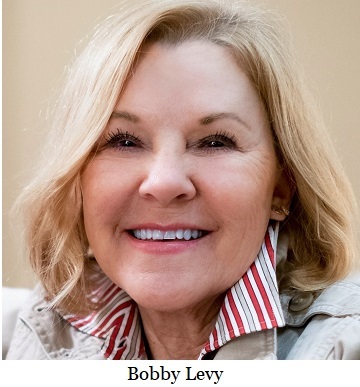
 Representative Shelly Boshart Davis (R-Albany), one of the sponsors of HB 2215, toured NuScale Power located in the old HP campus on Hwy 20. "They are pioneering clean nuclear power," she states. “I was impressed by the safety of the NuScale design. The design eliminates a Fukushima-type event. They simulated an earthquake while I was there, and they walked me through how quickly the system can recover and rapidly return to power to support first responders such as hospitals, police and fire. The biggest issue renewable energy faces is reliability. Nuclear provides reliability when used alongside other sources of energy.â€
Representative Shelly Boshart Davis (R-Albany), one of the sponsors of HB 2215, toured NuScale Power located in the old HP campus on Hwy 20. "They are pioneering clean nuclear power," she states. “I was impressed by the safety of the NuScale design. The design eliminates a Fukushima-type event. They simulated an earthquake while I was there, and they walked me through how quickly the system can recover and rapidly return to power to support first responders such as hospitals, police and fire. The biggest issue renewable energy faces is reliability. Nuclear provides reliability when used alongside other sources of energy.â€

 Solar and wind energy producing options may have low emissions, but they dirty the environment in other ways and are not reliable or dependable enough to support the demands of our power grid. Not to mention they are made in China. With all the safeguards that have been developed to make nuclear-fueled thermal power withstand natural disasters, where are the green supporters?
Solar and wind energy producing options may have low emissions, but they dirty the environment in other ways and are not reliable or dependable enough to support the demands of our power grid. Not to mention they are made in China. With all the safeguards that have been developed to make nuclear-fueled thermal power withstand natural disasters, where are the green supporters?
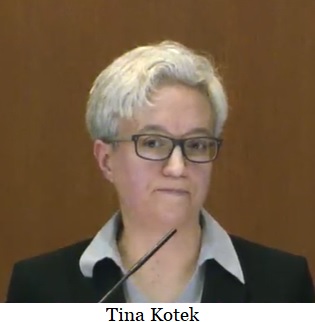


 Representative Shelly Boshart Davis (R-Albany) presented the ODOT report, report of the task force, and charts that doesn’t support the need for the bill, which states: “In most cases, cost is a chief impediment to the transition to newer engines and adoption of alternative technologies. Additionally, the Task Force heard that successful projects rely in flexible incentives, allowing fleets to identify technologies or upgrades that meet their unique operational needs. While the cost of replacing the entire Oregon diesel fleet with modern, less-polluting equipment is far too large for a public financing project, substantial progress has been made by other states with incentive programs designed to speed the transition to cleaner equipment. Public incentives for entities regulated by House Bill 2007 is especially important.â€
Representative Shelly Boshart Davis (R-Albany) presented the ODOT report, report of the task force, and charts that doesn’t support the need for the bill, which states: “In most cases, cost is a chief impediment to the transition to newer engines and adoption of alternative technologies. Additionally, the Task Force heard that successful projects rely in flexible incentives, allowing fleets to identify technologies or upgrades that meet their unique operational needs. While the cost of replacing the entire Oregon diesel fleet with modern, less-polluting equipment is far too large for a public financing project, substantial progress has been made by other states with incentive programs designed to speed the transition to cleaner equipment. Public incentives for entities regulated by House Bill 2007 is especially important.â€



 For information on the initiatives, the rulings and modified ballot titles, see the IRR Database. Education Freedom for Oregon has launched the "Let Them Learn" signature gathering drive and ask for your help.
For information on the initiatives, the rulings and modified ballot titles, see the IRR Database. Education Freedom for Oregon has launched the "Let Them Learn" signature gathering drive and ask for your help.








 This information will be used to inform upcoming stock assessments about how juvenile fish grow and recruit into our nearshore fisheries. This is key to understanding how groundfish populations are replenished. The project also funds another year of monitoring efforts and helps evaluate the role of marine reserves as a refuge for these fishes. ODFW marine reserves staff is assisting with this project.
This information will be used to inform upcoming stock assessments about how juvenile fish grow and recruit into our nearshore fisheries. This is key to understanding how groundfish populations are replenished. The project also funds another year of monitoring efforts and helps evaluate the role of marine reserves as a refuge for these fishes. ODFW marine reserves staff is assisting with this project.
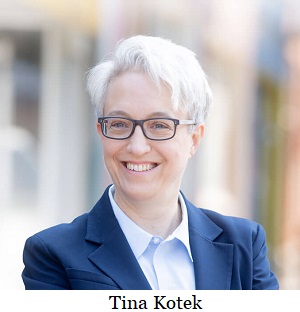




 To the heart of Valentines Day, the hearing is scheduled to include HB 2585, sponsored by Representative Lily Morgan (R-Grants Pass), which will end automatic voter registration through Oregon Motor Voter. It reestablishes the process of registration at any office of Department of Transportation where licenses or renewal applications are distributed or received that existed prior to enactment of Oregon Motor Voter. This bill is identical to HB 2233 sponsored by Representative Kevin Mannix.
To the heart of Valentines Day, the hearing is scheduled to include HB 2585, sponsored by Representative Lily Morgan (R-Grants Pass), which will end automatic voter registration through Oregon Motor Voter. It reestablishes the process of registration at any office of Department of Transportation where licenses or renewal applications are distributed or received that existed prior to enactment of Oregon Motor Voter. This bill is identical to HB 2233 sponsored by Representative Kevin Mannix.
